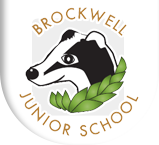“Education is the most powerful weapon which you can use to change the world.” Nelson Mandela
“Geography is a subject which holds the key to our future.” Michael Palin
‘Learn, love, look after’ ~ we will only love something if we learn about it, and if we love it, we will look after it. School Subject Leader
Brockwell children leave school excited about making their own way in a world they are excited to know so much about. With local area a key feature, the curriculum maps show the specific learning challenges and case studies that build on each other to develop the knowledge and skills needed to achieve ambitious end points.
Geography Progression Map
Summary of Intent, Implementation and Impact
Geography Policy
Concepts transcend the phase including:
Place – Compare the position of two places in relation to one another using maps, diagrams, globes, aerial photographs and GIS ie countries, regions and time zones across the world.
Space – Explain how the features of an environment/space affect its use i.e. people settle near natural resources.
Sustainability – Analyse the impact of human use of natural resources and determine if this can be maintained i.e. impact of plastic use on the world’s oceans.
Change – Explain how human use of natural resources have impacted the Earth i.e. impact of burning fossil fuels or fair trade farming and the implication of that.
Why are jungles so wet and deserts so
dry? What is the Magic Kingdom really like? Why is fair trade ‘fair’? How can we live more sustainably? These are a few of the many learning challenges the children become involved with.
Displays around school include those that show what’s in the news, world affairs and local news issues. Assemblies are regularly used to learn about local, national and international geography – our teacher’s climb to the top of Kilimanjaro as one example.
Our approach ensures skills are developed, fieldwork opportunities deepen understanding and knowledge is adapted to changing circumstances. Learning is celebrated through opportunities such as ‘Mediterranean Day’ in Year 3 when food tasting, dance and traditional dress transform their school day, visit to Kelham Island and river study in Holmebrook Valley Park.
Our aims include the teaching of observation, recording, questioning and researching. Much of the work starts from what the children know and moves out from that point. Hence there is emphasis on the children’s environment in Holmebrook Valley Park, Loundsley Green, Sheffield and Eyam / Peak District National Park. Other work is on a regional, national and international scale.
Supporting change is being developed so each class supports a charity connected with the inspirational person after whom their class is named.
Our vision is to provide a coherent, progressive and rigorous learning experience for our pupils in order to reach the following end points:
to equip our pupils with the geographical skills and knowledge that will enable them to ready for the curriculum at Key Stage 3.
to develop their cultural capital in order to inspire them and prepare them for life as an adult in the wider world.
to ensure that our pupils have been engaged and motivated by their learning in geography, therefore encouraging them to see the world through the eyes of young geographers ~
exploring and understanding the relationship and interactions between people and the environments in which they live and upon which they and all life on earth depends, and using this awareness to contribute to building a more informed and sustainable world in the future.
